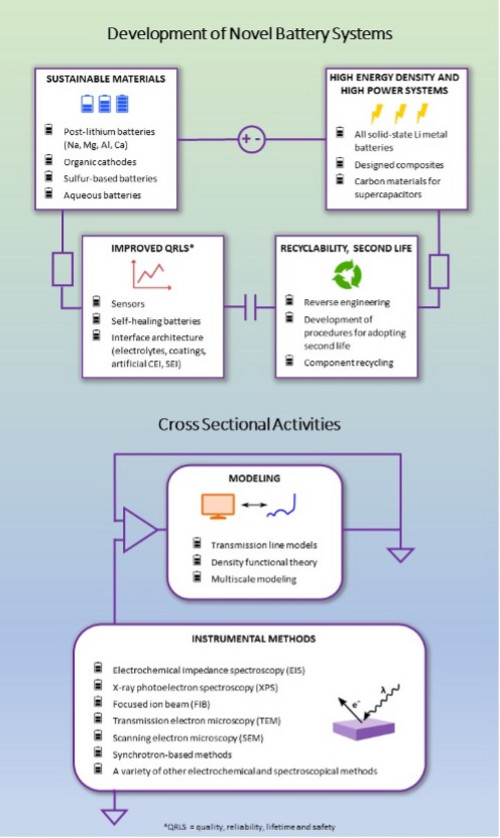Advanced batteries as support for the green transition and electromobility
P2-0423
Duration: 1.1.2022 - 31.12.2027
Head:
prof. dr.
Dominko Robert
Head at FKKT:
izr. prof. dr.
Genorio Boštjan
Electrochemical energy storage systems, particularly batteries, provide a simple means of storing renewable energy sources (RES) and as such are an important energy source for many portable devices, including the automobile. The electromobility sector is seen as a key technology for achieving the Green Deal targets. Current Li-ion battery technology still has many limitations. The main limitations are: limited Li, Co, Cu and Ni resources, safety, reliability, longevity, high carbon footprint and high cost. In the research program " Advanced batteries as support for the green transition and electromobility", we tackle the main issues related to the development of batteries that will enable a green transition and zero-carbon mobility in the future.
The program combines four research pillars in the field of advanced battery systems supported by two cross-sectoral activities (scheme 1). Together they contribute to the development of new concepts for sustainable materials. This includes improving existing active materials, working on interfaces, and introducing smart functions into cells. In our work, we also investigate the lifespan and the possibility of recycling components or entire cells.
Activities in the field of sustainable battery materials include research into post-Li batteries based on Na, Mg, Ca, Zn, Al and sustainable cathodes (sulfur, redox-active organic materials), which are tested in various electrolytes.
Another area of activity concentrates on systems with high energy density and performance, focusing on technical electrode architectures in combination with solid electrolyte batteries and on the development of carbon materials for supercapacitors.
The third area of activity comprises activities to improve quality, reliability, durability, and safety (QRLS) in various battery types. Here we build sensors into battery cells, develop self-healing functions and design interface surfaces.
The fourth group of activities focuses on the production, recycling and potential second life of battery cells. All four research directions are supported by two interdisciplinary activities, namely: advanced characterization and modeling, which include different characterization tools and modeling approaches at different scales.

Scheme 1: Description of the research area of advanced battery systems as support for the green transition and electromobility.